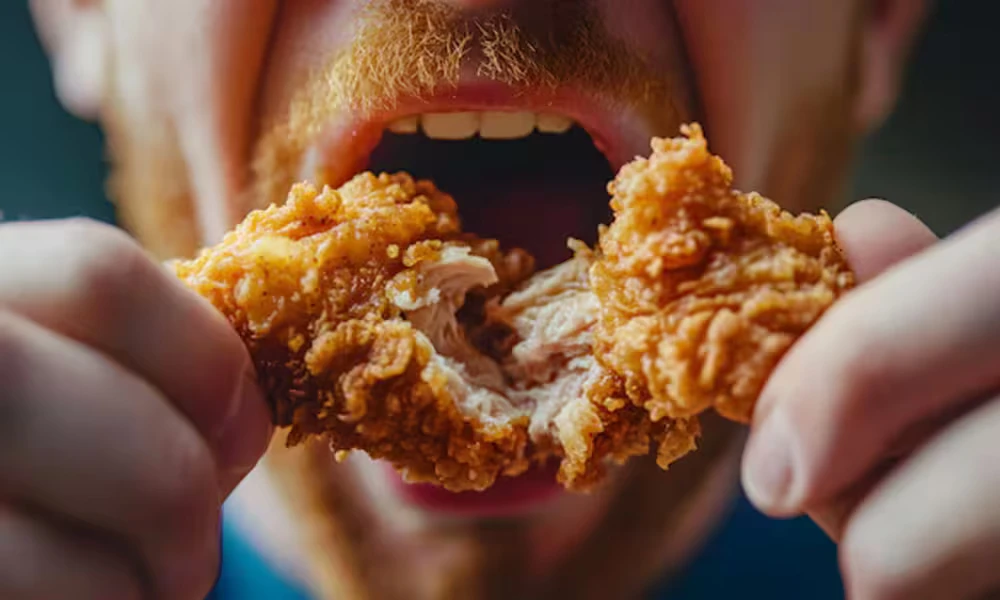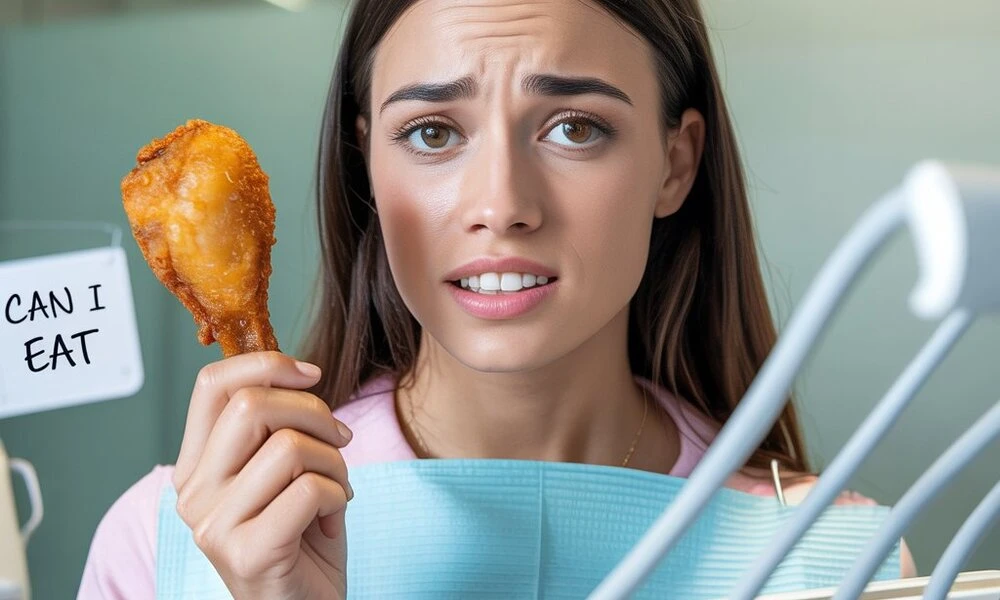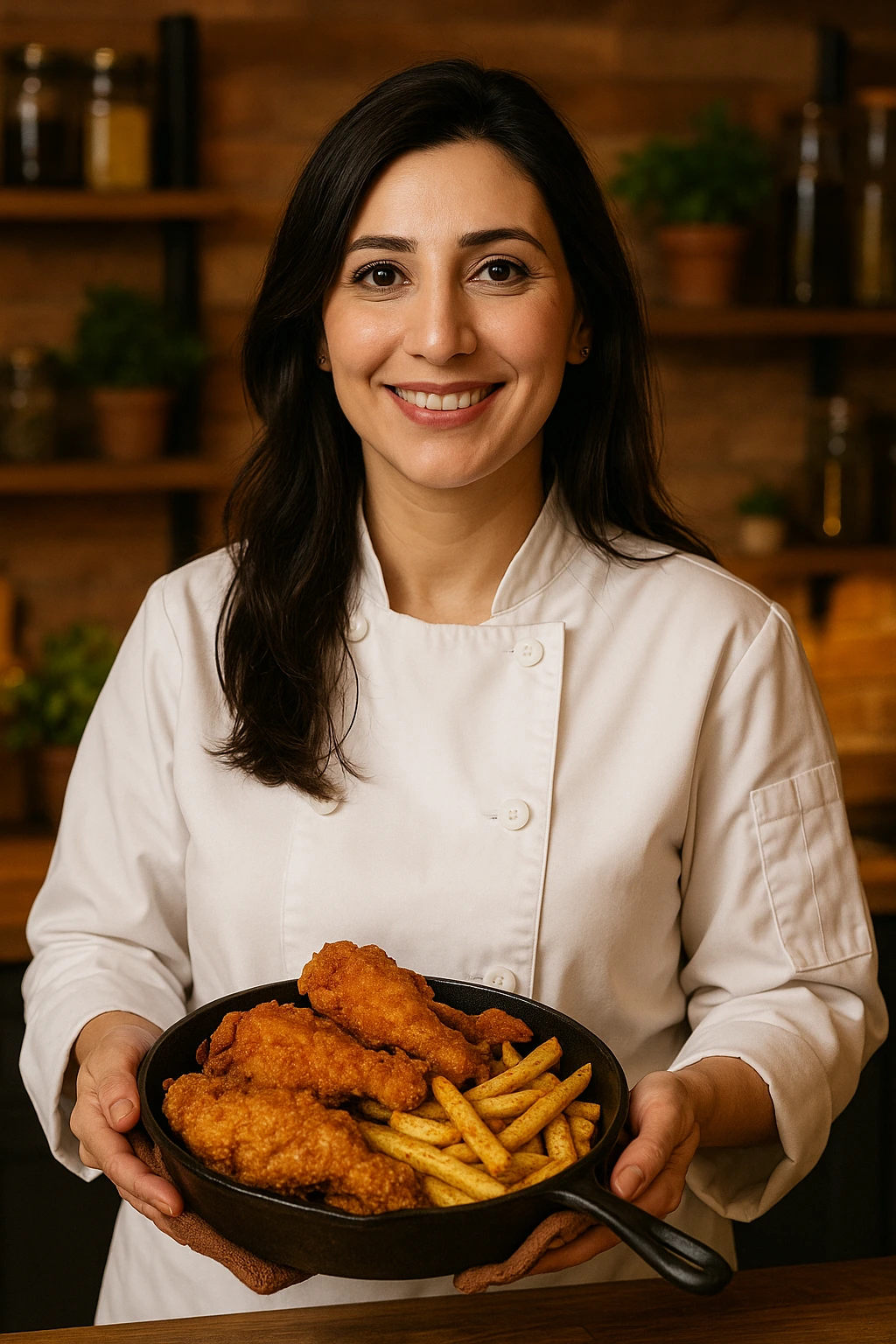Teeth whitening has become one of the most popular cosmetic dental procedures in recent years. Whether it’s an in-office professional treatment or a take-home kit, the goal is the same—brighter, whiter teeth. But once you’ve achieved that sparkling smile, many questions arise about how to maintain those results. One of the most common concerns is: Can I eat fried chicken after teeth whitening?
If you’re a fan of crispy, golden fried chicken, you might be eager to indulge. But before you do, it’s crucial to understand how the foods you eat post-whitening can impact your results. In this comprehensive guide, we’ll dive into everything you need to know about eating fried chicken after teeth whitening.
Why Post-Whitening Care Matters
After a whitening procedure, your teeth become more porous and sensitive. This temporary condition means they’re more susceptible to staining and damage from certain foods and drinks.
The Role of Enamel Porosity
Teeth whitening treatments use peroxide-based agents to penetrate the enamel and lift deep-set stains. While effective, this process also opens up the enamel temporarily, making it easier for pigmented substances to penetrate.
Think of your enamel as a sponge for the first 24 to 72 hours post-treatment. What you consume during this time can either support your whitening results or sabotage them.
Can I Eat Fried Chicken After Teeth Whitening?

The Short Answer:
It’s best to avoid eating fried chicken immediately after teeth whitening—especially within the first 48 hours.
Why You Should Wait:
- Grease and Oil Residue: Fried chicken is high in oil and grease, which can stick to your teeth and act as a magnet for stains.
- Breading and Seasoning: The golden-brown coating often contains spices, artificial coloring, and sauces that can cause discoloration.
- Acidity and Sugars: Depending on how the chicken is prepared, it may contain acids or sugars that further weaken your enamel.
- Temperature Sensitivity: Hot fried chicken may also trigger discomfort in teeth that are temporarily more sensitive.
If you’re craving fried chicken, it’s advisable to wait at least 48 to 72 hours after your whitening treatment and consume it in moderation with proper dental hygiene afterward.
The “White Diet”: What It Is and Why It Matters
Dentists often recommend the “White Diet” for the first 2-3 days post-whitening. The idea is simple: eat only white or light-colored, non-acidic, non-staining foods to protect your enamel and maintain the whitening effect.
Safe Foods Include:
- Boiled or grilled chicken (unseasoned)
- White rice
- Plain yogurt
- Mashed potatoes
- White pasta
- Cauliflower
- Egg whites
- Skim milk
- Bananas
Fried chicken does not fit into this category due to its dark, greasy, and often seasoned exterior.
How Long After Teeth Whitening Can You Eat Fried Chicken?
Timeline Breakdown:
| Time After Whitening | Can You Eat Fried Chicken? | Notes |
| 0–24 hours | No | Enamel is highly porous and sensitive. |
| 24–48 hours | Not recommended | Some recovery, but risk of staining remains. |
| 48–72 hours | In moderation | Okay if teeth feel normal and chicken is lightly seasoned. |
| After 72 hours | Safe | Resume normal eating habits with caution. |
Healthier Alternatives to Fried Chicken Post-Whitening
If you’re looking for satisfying alternatives while you wait to enjoy your favorite fried foods, try these options:
1. Grilled Chicken
Grilled chicken is a flavorful and tooth-friendly alternative that provides the satisfaction of cooked meat without the risks associated with fried foods.
Why it’s a good option post-whitening:
- Grilling uses dry heat, which means no staining oils or heavy fats.
- When seasoned lightly with herbs like rosemary, thyme, or oregano (avoiding colored spices like paprika or turmeric), it remains safe for your newly whitened teeth.
- Grilled chicken retains its natural juices, making it both tender and nutritious.
Preparation tips:
- Use skinless chicken breast to reduce fat content.
- Avoid marinades containing soy sauce, balsamic vinegar, or barbecue sauces, as these can cause discoloration.
- Grill at medium heat and flip regularly to avoid charring, which can create dark crusts that could affect enamel.
2. Boiled or Poached Chicken
Boiling or poaching is one of the safest cooking methods after teeth whitening. These methods are gentle and free of harsh additives or colorants.
Why it’s a good option post-whitening:
- These methods use only water (sometimes with light herbs or salt), keeping the chicken free of pigments that might stain teeth.
- Boiled or poached chicken is soft and easy to chew, reducing strain on your teeth and minimizing the risk of sensitivity or enamel wear.
- Its neutral flavor makes it easy to incorporate into a variety of meals, from broths to bland salads.
Preparation tips:
- Use boneless, skinless chicken breast for best results.
- Add mild herbs like bay leaf or parsley to enhance flavor without introducing color.
- Avoid adding mustard, curry powder, or bouillon cubes with artificial color.
3. Baked Chicken (No Skin)
Baking chicken is a gentle cooking method that preserves moisture and tenderness without exposing your teeth to staining agents or excessive fats.
Why it’s a good option post-whitening:
- Baking uses dry heat without the need for heavy oils or colorful sauces, reducing the risk of staining your freshly whitened teeth.
- Using skinless chicken breast ensures a lean protein option that’s easy on your enamel and less likely to cause sensitivity.
- Light seasoning with mild herbs keeps the flavor enjoyable without introducing pigments that could discolor your teeth.
Preparation tips:
- Choose boneless, skinless chicken breast to keep it lean and tooth-friendly.
- Season lightly with herbs such as thyme, rosemary, or parsley—avoid colored spices like paprika, curry, or chili powder.
- Bake at a moderate temperature (around 350°F or 175°C) until cooked through, avoiding charring or browning that might produce staining crusts.
Tips to Protect Your Whitened Teeth When Eating Fried Chicken

If you’ve waited the proper time and want to indulge in fried chicken again, follow these smart tips to reduce staining risk:
1. Rinse Immediately
After indulging in fried chicken, it’s important to rinse your mouth right away. Doing so helps wash away grease, food particles, and any acidic or staining elements before they settle into the enamel. Plain water is effective, but using an alcohol-free mouthwash can offer added protection by neutralizing acids and killing bacteria. This simple step can significantly reduce the risk of post-meal stains.
2. Use a Straw for Beverages
When drinking anything other than water—such as soda, iced tea, juice, or coffee—it’s best to use a straw. A straw minimizes contact between the beverage and your teeth, especially your front teeth, which are most visible when you smile. This is crucial for maintaining the brightness of your whitened teeth, as many of these drinks are known culprits for discoloration.
3. Brush After 30 Minutes
It may seem intuitive to brush your teeth immediately after eating, but doing so can actually harm your enamel. Fried chicken and its accompaniments can be acidic or greasy, which temporarily softens your enamel. Brushing right away may wear it down. Instead, wait about 30 minutes to allow your saliva to neutralize the acids. Then, brush with a soft-bristled toothbrush and fluoride toothpaste to clean and protect your teeth without causing damage.
4. Use Whitening Toothpaste
To maintain your bright smile, consider using a whitening toothpaste daily. These toothpastes are specially formulated to lift surface stains and prevent new ones from forming. While they won’t drastically whiten your teeth like professional treatments, they do help prolong the effects by removing minor discoloration and keeping your enamel clean and polished.
5. Avoid Dark Dips and Sauces
Popular sauces like barbecue, soy sauce, and ketchup are often acidic and dark in color—both of which contribute to staining. After teeth whitening, your enamel is more porous and vulnerable to discoloration from pigmented foods. Instead of these darker sauces, opt for lighter condiments like garlic aioli, ranch, or lemon-based dressings. These alternatives are less likely to compromise your whitened smile while still adding flavor to your fried chicken.
Common Foods and Beverages to Avoid Post-Whitening
| Category | Examples | Risk Level |
| Dark Beverages | Coffee, tea, cola, red wine | High |
| Sauces | Soy, tomato, curry | High |
| Bright/Dark Foods | Berries, beets, chocolate | High |
| Acidic Foods | Citrus fruits, vinegar-based items | Moderate |
| Colored Snacks | Chips, colored popcorn | Moderate |
Fried chicken with a dark crust falls into the “Moderate to High” risk category, depending on preparation.
Long-Term Care After Whitening
To maintain your bright smile, follow these long-term strategies:
1. Maintain Regular Dental Hygiene
Brush twice daily with fluoride toothpaste and floss at least once a day.
2. Limit Stain-Causing Foods
Even after the initial post-whitening phase, try to limit exposure to dark and acidic foods.
3. Touch-Up Treatments
Depending on your lifestyle, consider touch-up whitening every 6-12 months under professional guidance.
4. Drink Plenty of Water
Staying hydrated helps rinse food particles and reduce bacterial buildup.
Professional Insights: What Dentists Say
Most dentists agree that avoiding foods like fried chicken immediately after whitening is essential for optimal results.
According to Dr. Carla Wright, DDS:
“Patients often underestimate how sensitive teeth are post-whitening. Even foods that don’t look like they would stain, like seasoned fried chicken, can have a surprisingly negative impact due to oils and coloring agents.”
Another expert, Dr. Miguel Torres, notes:
“We advise the ‘white diet’ because it’s simple and effective. Sticking to light, low-pigment foods during the first 48 hours can make a huge difference in the longevity of whitening results.”
Conclusion: Can I Eat Fried Chicken After Teeth Whitening?
To summarize, it’s not advisable to eat fried chicken immediately after teeth whitening, especially within the first 48 hours. The combination of oils, seasonings, and crunchy textures poses a risk to your temporarily porous enamel and can diminish your results.
However, after 2–3 days, you can reintroduce fried chicken in moderation—just be sure to rinse, brush, and maintain good oral hygiene practices.
Feel free to contact Crown Fried Chicken If you have any query related to fried chicken.
Frequently Asked Questions (FAQs)
1. Can I eat chicken after teeth whitening?
Yes, but opt for boiled or grilled white chicken without sauces or dark seasonings in the first 48–72 hours.
2. Why can’t I eat fried foods after whitening?
Fried foods are oily and often contain dark seasonings that can stain your teeth when the enamel is most vulnerable.
3. How long should I wait before eating fried chicken again?
It’s best to wait at least 48–72 hours after the whitening procedure before eating fried chicken.
4. Can I drink soda or iced tea after teeth whitening?
Avoid these beverages for at least 48 hours due to their high staining potential. Water is best.
5. What happens if I eat fried chicken too soon after whitening?
You risk staining your freshly whitened teeth, which may require another treatment or touch-up.
6. Do I need to re-whiten if my teeth get stained again?
Not always. Good oral care and occasional whitening toothpaste or trays may help, but consult your dentist if needed.
7. Are there any safe sauces I can use with my chicken after whitening?
Stick to light-colored sauces like garlic cream, plain yogurt, or mild cheese sauces in moderation.

Hi, I’m Lena Brooks, a proud Southern soul who grew up in my grandmother’s kitchen. For over eight years, I’ve been perfecting crispy fried chicken, zesty seafood boils, and juicy homemade burgers. I love giving classic recipes a healthy twist think keto-friendly, vegan, or kefir-infused and every dish is tested in my own kitchen to make sure it’s foolproof and delicious. Whether you’re just starting out or you’ve been cooking for years, join me for simple, heartwarming recipes that bring people together.
